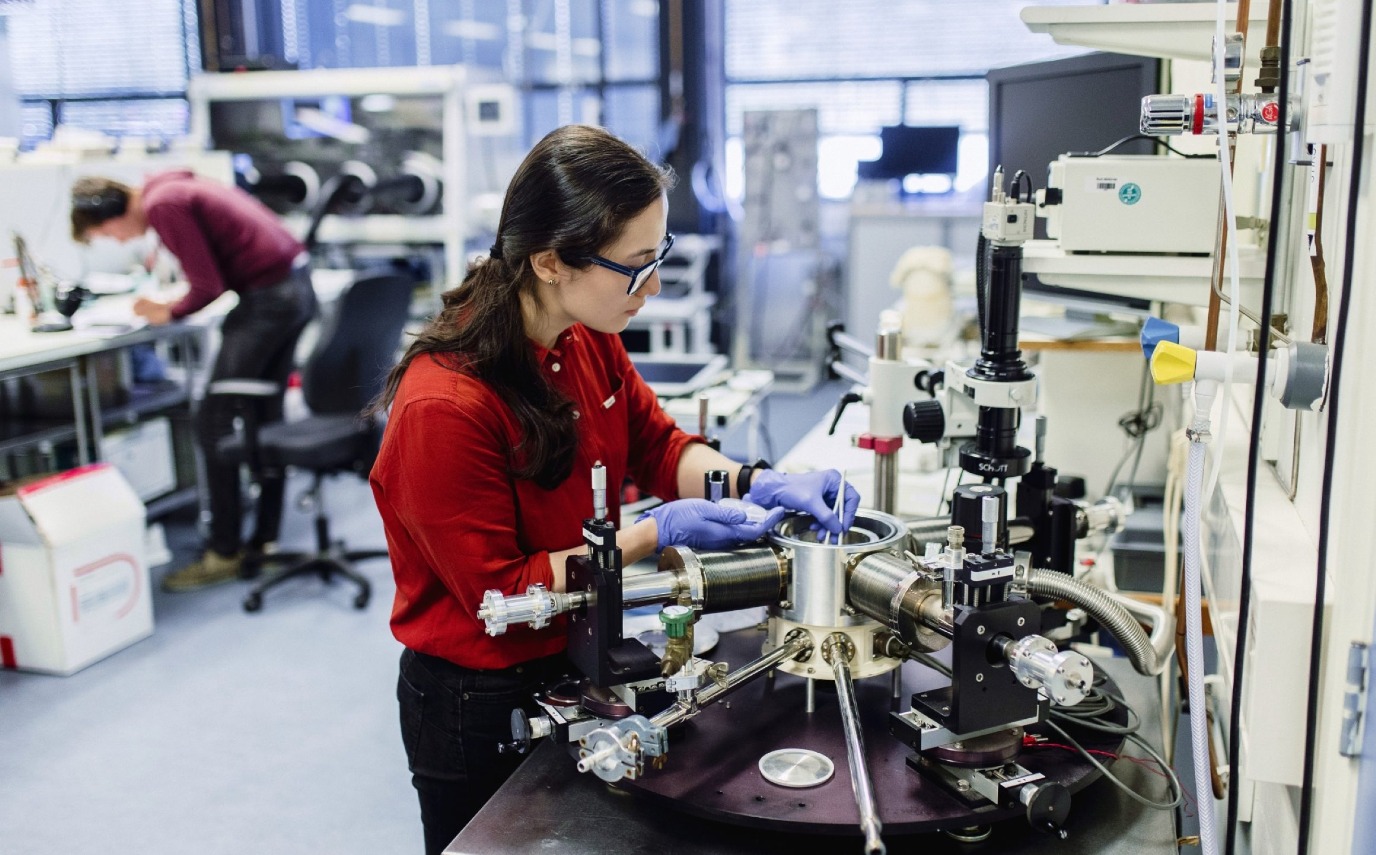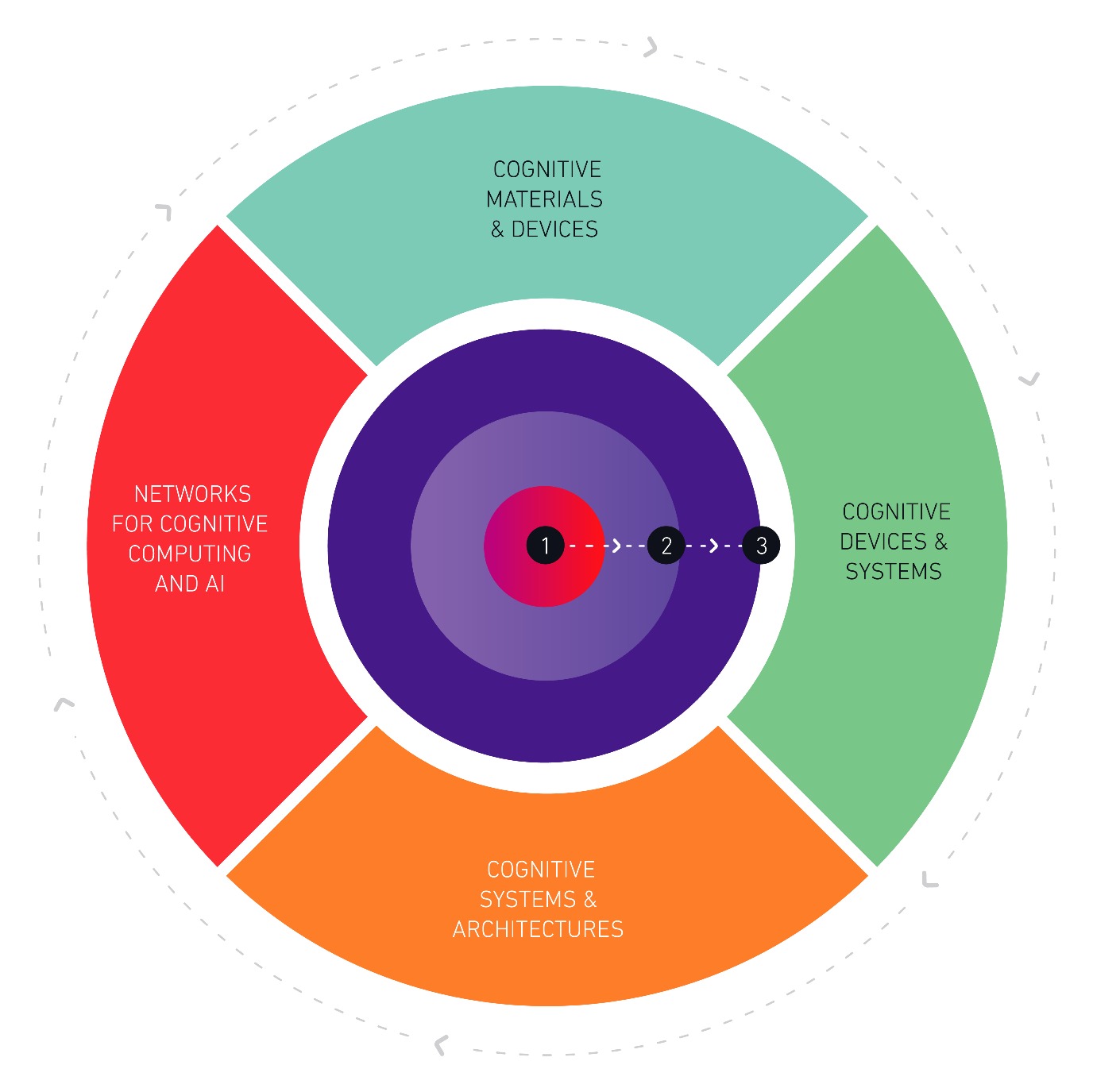What we do
What is neuromorphic computing, and why is it so important?
It’s hard to imagine a life without the convenience of an online search, working in the cloud, communicating online or consulting ChatGPT. Computing has acquired a central role in our society, and although it has brought global prosperity, it has a downside. Surging data traffic and related energy consumption by data centres, partly due to the rapid increase of AI, cause an unsustainable demand that can’t be met by modern computers.
For this reason, it’s time for a new generation of computers: future-proof computing. This type of computing is an approach that mimics processes of the human brain and is called neuromorphic computing.

Game changer for future-proof computing
After 70 years of continuous innovation, today’s challenges demand a radical shift in computing. Neuromorphic engineering is leading this revolution, mimicking the brain’s architecture with spiking neural networks and specialised chips that are up to 10,000 times more energy efficient than traditional processors. By combining past expertise with new materials and designs, neuromorphic computing is transforming AI hardware — enabling ultra-efficient, low-power systems that push the boundaries of what machines can achieve.
Our cyclical approach to neuromorphic computing
To translate these breakthroughs into real-world impact, our research follows a structured, cyclical approach built on four key themes — cognitive materials, devices, circuits, systems, and AI-driven networks — all working together to shape the future of cognitive computing.

The journey unfolds across three interconnected layers:
- Fundamental Research: laying the scientific groundwork
- Demonstrators: bringing concepts to life
- Applications: transforming breakthroughs into real-world impact
By seamlessly linking discovery to application, we ensure that every insight fuels the next leap forward.
Designing a blueprint for neuromorphic computing
As CogniGron continues to conduct fundamental research into future-proof computing, translating existing knowledge into specific applications, we aim to connect our scientific knowledge and business skills. We envision an ecosystem where business and knowledge partners collaborate and work on brain-inspired energy-efficient computing solutions.

Within our ecosystem, we will collaborate on:
-
Developing new materials as the basis for future-proof computer chips
-
Integrating applied engineering research to translate our knowledge into production
-
Initiating first applications for the implementation of neuromorphic computing
-
Establishing start-ups to bring applications to market
| Last modified: | 03 March 2025 12.06 p.m. |
